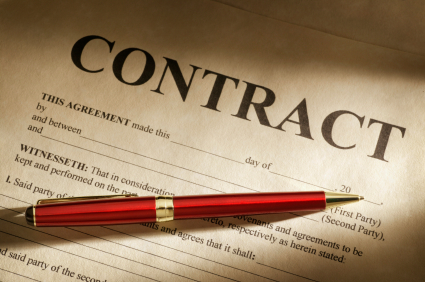DUE DILIGENCE BEFORE SIGNING A LICENSING DEAL
 The key to success in licensing is making deals, and licensors and licensees are always anxious to sign another license agreement and put more licensed products into the marketplace. However, it is important to keep the enthusiasm for new deals from overwheliming the need to conduct a thorough due diligence investigation of the other party and what that party appears to be bringing to the table.
The key to success in licensing is making deals, and licensors and licensees are always anxious to sign another license agreement and put more licensed products into the marketplace. However, it is important to keep the enthusiasm for new deals from overwheliming the need to conduct a thorough due diligence investigation of the other party and what that party appears to be bringing to the table.
Due Diligence Issues for the Licensor
It is impossible to place too much emphasis on the need for the licensor to conduct a thorough due diligence investigation of a potential licensee before granting a license to that licensee. Regardless of how comprehensive or iron-clad the license agreement is, once a licensee starts distributing poor quality product, falls behind in the payment of royalties or violates some other term of the license, the licensor or the licensor's property will be damaged, and that damage may be irreparable. The licensor's only remedies will be to sue for breach of contract and terminate the license. If the license is terminated, the product line covered by the licensee will probably remain open until a new licensee can be put in place for the next selling season. This will create a gap in the licensing program, and the licensor will be deprived of royalties that it would have otherwise received.
Every licensing deal should begin with the investigation of the potential licensee, and a licensor should always ask the following questions before entering into a license agreement:
- Reputation of the Licensee. Does the licensee produce merchandise that will meet the licensor's quality standards? What is the licensee's reputation with its wholesalers, distributors, and retailers? Will the licensee use low wage foreign labor or enagage in other business practices that might create a public relations problem for the licensor?
- Experience of the Licensee. Does the licensee have experiense with the types of licensed products covered by the license, and with the image and market niche that the licensor envisions for the property? Does the licensee have access to the channels of distribution covered under the license agreement?
- Financial Condition of the Licensee. Does the licensee have the financial resources needed to produce, store, and ship an adequate inventory of licensed products, and to support an appropriate marketing campaign? Is the licensee creditworthy, or is there a substantial risk that the licensor's royalties will be diverted to cover the licencee's general operating expenses or to pay other licensors? Is there a possibility that the licensor's royalties, or the license agreement itself, may end up in the hands of a bankruptcy trustee?
- Competing Products. Does the licensee handle other products that might compete with licensed products? If so, will the licensee devote sufficient resources and attention to the licensor's licensed products?
Due Diligence Issues for the Licensee
The licensee also has some concerns before committing to a license. The licensee will usually have to make a substantial financial investment in order to undertake a licensing project, and will want to insure that it will have the opportunity to realize a reasonable return on that investment. Accordingly, before committing its resources to a licensed property, a licensee should assure itself of the following:
- Protection for the Licensed Property. Is the licensed property protected under copyright or trademark law or some other source of protection? How strong is that protection, and is there a possibility that the validity of the claim to protection could be challenged (e.g. if the property is a trademark, is that mark generic or merely descriptive, or is it so common in occurence as to have only a narow scope of protection)? Has the licensor obtained the appropriate copyright and trademark registrations in the property?
- Ownership of Rights in the Licensed Property. If the licensor is not the creator of the licensed property, has the licensor acquired all of the rights that it needs to grant the license to the licensee? If the licensor is the creator but has entered into other license agreements, do any of those agreements include a grant of the rights intended to be covered under the current license? Are there likely to be conflicting claims between joint authors or other claimants as to the ownership of rights in the licensed property?
- Strength/Uniqueness of the Property. Does the property stand out in the marketplace, or will it be just another face in the crowd? Is the property a fad that is likely to fade soon, or will it have lasting value?
- Reputation/Standing of the Property. How is the property currently viewed in the marketplace? Could actions by the licensor, other licensees or unrelated third parties injure the property or reduce demand for the licensed products? (This is often a problem with sports figures or celebrities, who seem to be prone to running afoul of the law or committing other acts which lessen their standing with the public.)
- Other Licenses for the Property. Has the licensor entered into or will the licensor enter into license for other types of products that will complement or compete with the products to be produced and sold by the licensee?
- Retailer Interest. Is there interest by any retailer or group of retailers in carrying products bearing the licensed property? Are there plans for any coordinated advertising campaigns with a retailer and/or with licensees of other licensed products?
Conclusion
Licensors and licensees will increase their chances for success if they take the time to investigate a deal fully before signing the license agreement and beginning production.